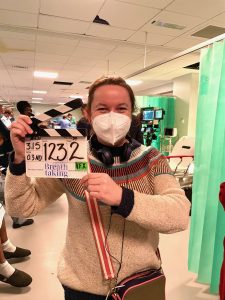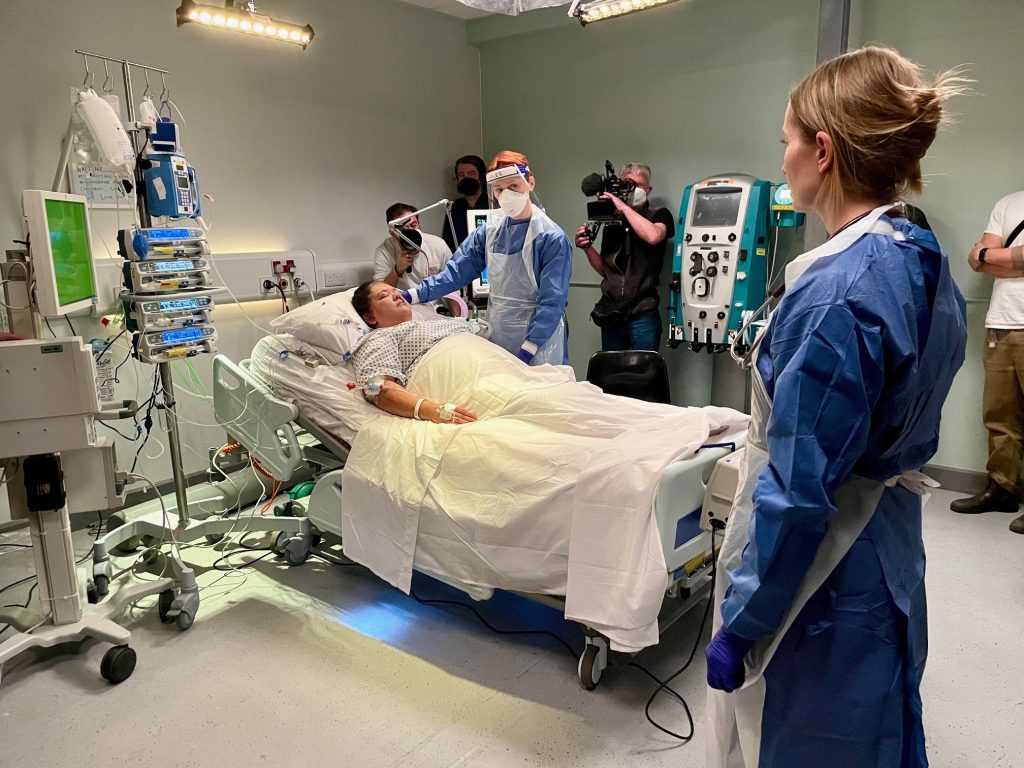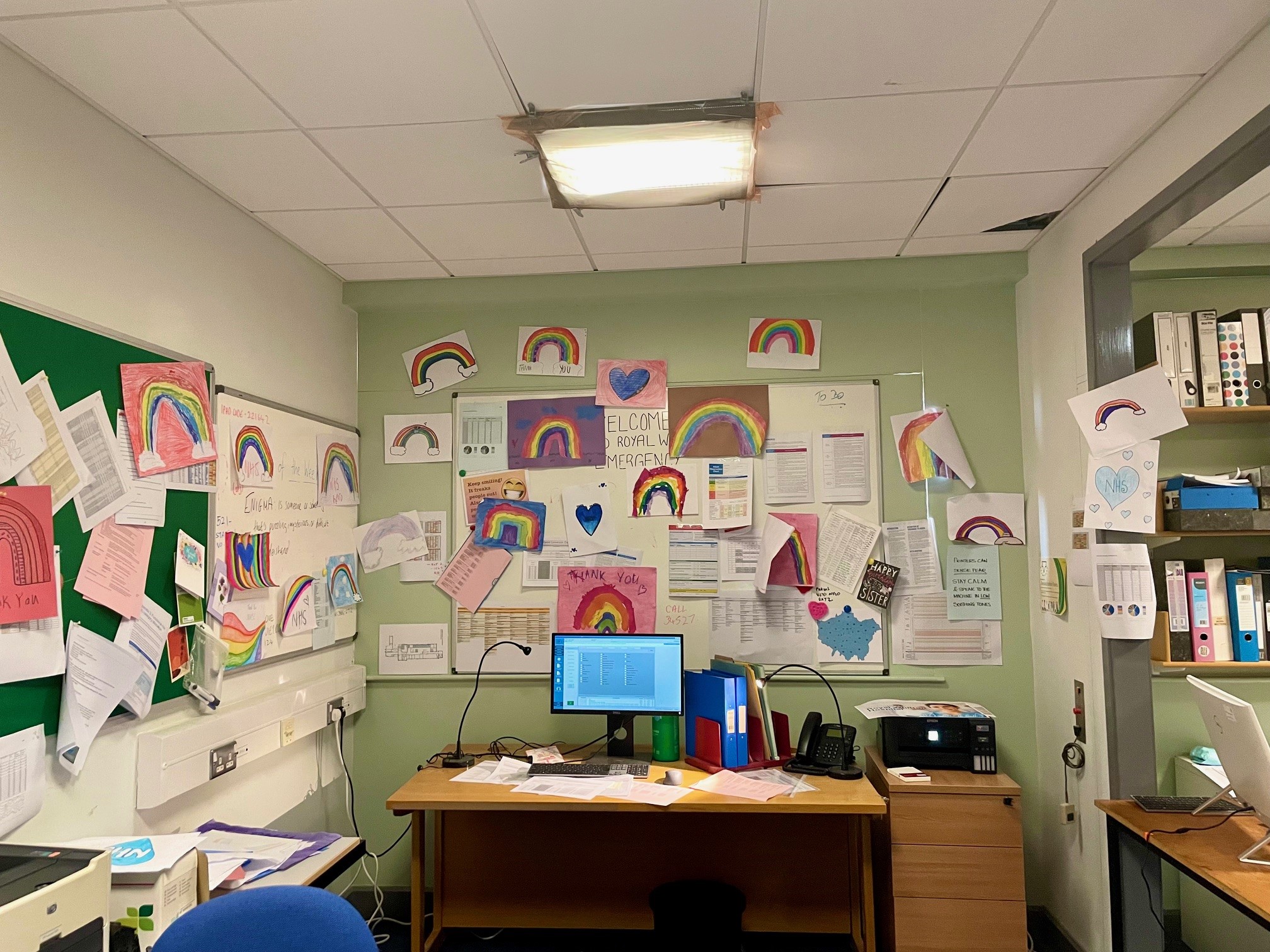Breathtaking, a powerful new ITV drama, tells the story of frontline NHS staff battling to save patients during the Covid-19 pandemic. It is based on Dr Rachel Clarke’s memoir of the same name. We spoke to Rachel ahead of the series being broadcast.
 We are speaking just a few days before your drama airs – how are you feeling?
We are speaking just a few days before your drama airs – how are you feeling?
Nervous, proud, apprehensive, excited! I feel a huge weight of responsibility. I desperately want NHS staff to feel we’ve got it right, that it’s authentic and true to their experiences during Covid.
Tell us about making the drama.
I’ve been closely involved with every step of the production. I’m one of the three writers and executive producers, and we started working on the idea three years ago. I spent some time on set and I was also very involved in the edit. It’s been an epic undertaking.
The recent dramatisation of the Post Office scandal has had a huge impact. What do you hope the public response will be to this series?
I feel it’s an opportunity to tell the story on screen, to help the public understand what NHS staff went through and how scarring the experience was.
NHS staff were exposed to a disease that could kill them, and many did get infected and die. It’s scandalous when you reflect back on the PPE situation, how there wasn’t enough, or how staff were told they were safe when they were issued with substandard PPE. I hope the series shines a light on that. It needs to be addressed – if we don’t, what will happen in the next pandemic?
You acknowledge the drama may be a difficult watch for NHS staff who were on the front line during Covid. What do you hope the medical community get from the series?
I’m mindful of how incredibly difficult conditions were. For me, there is a sense that it’s just not being talked about. Many doctors are scarred by what happened, but they just carry on, day in day out, and with all the pressures of the NHS. There is a sense that the stories of what staff went through during Covid have just been silenced or erased.
I’m a palliative care doctor, and specialise in the realm of death, dying, grief and loss. I’m aware that with trauma, if you just try and put it behind you and pretend it didn’t happen, it can cause it to fester, and perhaps become worse and more damaging in our subconscious.
There is a benefit to talking collectively about what happened. I hope this series is the start of a conversation between us, of what we all went through. That could be really therapeutic.

At the RMBF, we are aware that doctors can be reluctant to seek help, and to talk about their mental health. How do we tackle that culture?
It’s very prevalent in medicine, that sense that you need to be strong and stoic come what may, that if you show a flicker of weakness you’re somehow failing as a doctor. The best way to detoxify those attitudes is by modelling how to behave. Medicine is an apprenticeship: we learn how to conduct ourselves as doctors through observing our seniors and colleagues. It’s immensely powerful for a senior doctor in particular to share the emotional impact of difficult experiences at work.
If a medical director, CEO of a Trust, or Head of Department can share the impact that Covid had on their mental health, then that’s an incredibly powerful thing to do. It shows junior doctors that it’s OK to find things tough.
Given what you went through during Covid, and the emotional toll of working in palliative care, how do you protect your own mental wellbeing?
I adore medicine and love my job, despite everything – the trauma of Covid and the pressures of the NHS. I’ve honed a mindset during my many years in the profession. I always try to remember that no matter the circumstance, I focus fully and completely on the patient in front of me. There is always something I can do to make it better for them, even when the patient is dying and there are no more drugs, there’s always something I can do. The sheer act of sitting with that patient or their family in their moment of grief can make it better. Trying to show them they matter, and you care about them. I find that mindset and focus really helps me.
In terms of practical strategies, I always try and get outside, exercise and get fresh air to get those endorphins. I’m not great at specific wellbeing activities – I prefer to focus outwards on my family, and more recently, my new puppy.
Breathtaking will air on ITV1 at 9pm on Monday 19th, Tuesday 20th and Wednesday 21st February.

